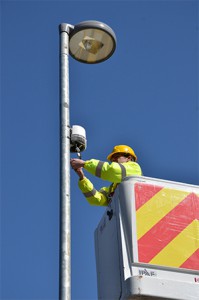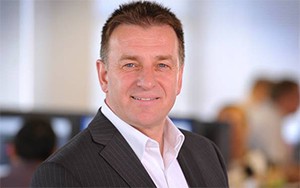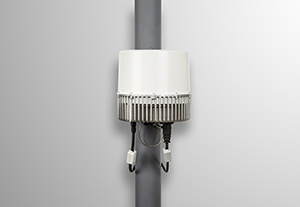Managing customer experience is a complex task with an ever-increasing number of variables to consider, from providing easy to use applications to delivering responsive customer service and clear billing. However, one of the most frustrating things these days is when you can’t do the very things that mobile operators are selling the latest and greatest handsets for – access the internet, download files and make video calls – when you’re on the move in busy urban areas that in theory at least should offer the best mobile coverage and fastest speeds.
The number of smartphone users and connected devices is increasing and with it the amount of data we use. A recent report published by Cisco predicts that by 2019, there will be 24 billion networked devices and connections globally, up from 14 billion in 2014. In addition, they suggest that there will be 11.5 billion mobile-ready devices and connections (4 billion more than there were in 2014), with mobile traffic reaching an annual run rate of 292 exabytes, compared with 30 exabytes in 2014. This dramatic increase means that even in the relatively short term, mobile operators have to focus on using more innovative and efficient technology to ensure quality of service as the system adapts to the increase in demand. As a result the shape of mobile networks is changing.
Delivering consistent and reliable network coverage and capacity in outdoor urban areas can be particularly difficult, with operators having to contend with huge crowds and peak traffic demands in stations and shopping areas, in an environment that isn’t always the most friendly for mobile signals. On top of this the latest buildings use materials that look great, but are also very good at disrupting mobile coverage.
 In this environment, targeted coverage via small cells is a necessity, but connecting them all up with quality backhaul isn’t always easy. Access to fibre is often limited and if it is available, it’s too expensive to deploy. Conventional wireless technologies present problems because the equipment is too big for discreet installation at street level. And they’re often too inflexible to deal with the changing requirements of the network.
In this environment, targeted coverage via small cells is a necessity, but connecting them all up with quality backhaul isn’t always easy. Access to fibre is often limited and if it is available, it’s too expensive to deploy. Conventional wireless technologies present problems because the equipment is too big for discreet installation at street level. And they’re often too inflexible to deal with the changing requirements of the network.
The risk is that unless you can guarantee the backhaul, the overall quality of experience will drop and it’s here that the latest wireless backhaul technologies are really making a difference. First off, the kit is small enough to install on lampposts and pass the planning hurdle, which can otherwise add considerable time and cost to any network rollout.
Most critically, these systems provide the required capacity to deal with increasing traffic demands, together with low latency to optimise the available capacity further. The most advanced wireless backhaul is self-organising, where capacity is dynamically allocated to wherever it’s needed, such as city hotspots during rush hour, while making the most efficient use of radio spectrum to deliver the optimal service.
Small cells require very accurate and reliable synchronisation and typically rely on GPS to maintain timing across the whole network. This presents a particular challenge in “urban canyons”, where narrow streets surrounded by tall buildings produce a limited view of the sky. Wireless backhaul systems that can operate in these challenging environments while delivering robust synchronisation to the small cell, offer a significant advantage both in terms of cost savings and overall network performance.
 With demand for data only set to increase, mobile operators need to consider the full range of technology available to them in order to deliver the best possible quality of service for users. As mobile networks evolve to provide much more targeted coverage via small cells, backhaul has a key role to play in determining the overall quality of experience.
With demand for data only set to increase, mobile operators need to consider the full range of technology available to them in order to deliver the best possible quality of service for users. As mobile networks evolve to provide much more targeted coverage via small cells, backhaul has a key role to play in determining the overall quality of experience.
By Steve Greaves, CEO and Co-founder of Cambridge Communication Systems Ltd






